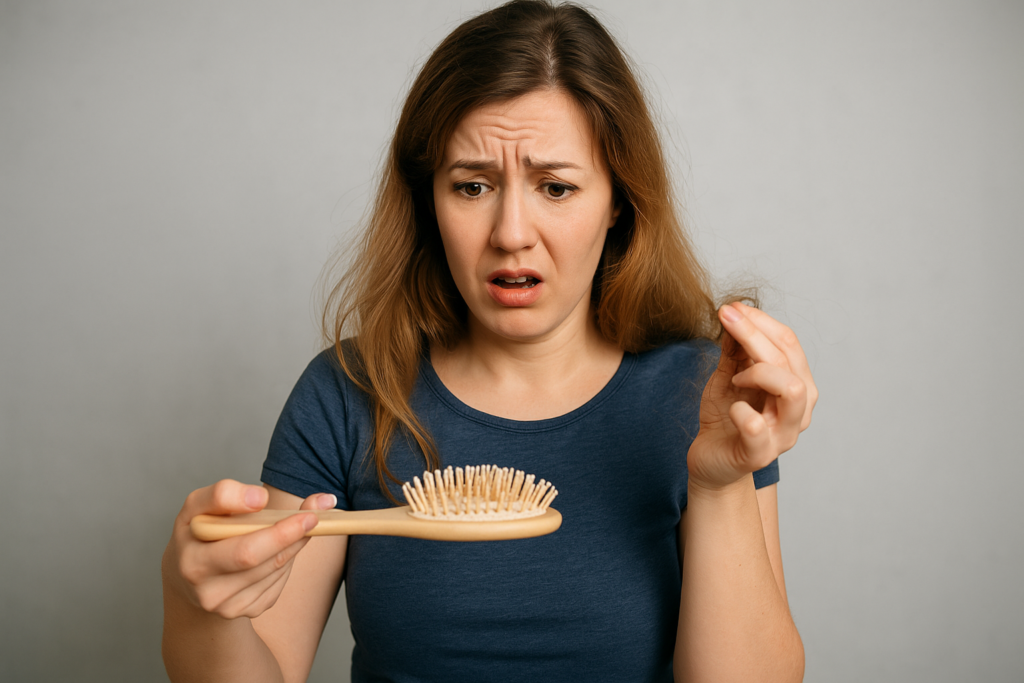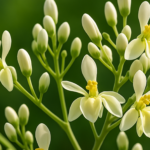Have you ever noticed more hair in your brush than usual? Or maybe you’ve seen small bald patches appearing on your scalp? You might be dealing with alopecia—a fancy word for hair loss.
Alopecia can happen to anyone—men, women, and even kids. It can be caused by stress, genetics, or even your immune system acting up. The good news? You don’t always need expensive treatments to fight it! Natural home remedies can help slow hair loss and even regrow hair.
In this post, we’ll break down:
✔ What alopecia is (in simple terms!)
✔ Why it happens
✔ 6 powerful home remedies to treat it naturally
Let’s dive in!
What Causes Alopecia?
Alopecia isn’t just one thing—it comes in different forms:
- Androgenetic Alopecia (Common Baldness)
- Runs in families (thanks, Mom & Dad!).
- Men get receding hairlines; women get thinning hair.
- Alopecia Areata (Patchy Hair Loss)
- Your immune system attacks hair follicles.
- Causes round bald spots.
- Telogen Effluvium (Stress-Related Hair Loss)
- Happens after illness, surgery, or extreme stress.
- Hair falls out in clumps.
- Traction Alopecia (From Tight Hairstyles)
- Ponytails, braids, or extensions pull too hard.
- Common in people who wear tight hairstyles often.
Top 6 Home Remedies for Alopecia
You don’t always need fancy treatments—nature has solutions! Here are the best home remedies backed by science and tradition.
1. Onion Juice (Yes, Really!)
Onions aren’t just for cooking—they can help your hair too! Onion juice has sulfur, which may boost hair growth and fight scalp infections.
How to Use:
- Peel and blend an onion.
- Strain to get the juice.
- Apply the juice to your scalp.
- Leave it on for 30 minutes.
- Wash with a mild shampoo.
Use this remedy once a week for best results.
📌 Tip: Mix with coconut oil to reduce the smell!
2. Rosemary Oil (Better Than Minoxidil?)
Rosemary oil is known to improve blood circulation to the scalp, which can promote hair growth. It’s also gentle and smells great!
How it helps:
- Improves blood flow to hair follicles.
- A 2015 study found it works as well as minoxidil (Rogaine)!
How to use:
- Mix 5 drops of rosemary oil with 1 tbsp coconut oil.
- Massage into scalp for 5 minutes.
- Leave for 30 minutes (or overnight).
- Wash off.
Repeat this 2-3 times a week.
3. Aloe Vera (Soothes & Heals Scalp)
How it helps:
- Reduces scalp inflammation (common in alopecia).
- Unclogs hair follicles for better growth.
How to use:
- Apply fresh aloe vera gel directly to scalp.
- Leave for 1 hour, then rinse.
- Use 3 times a week.
4. Fenugreek Seeds (Ancient Hair Savior)
How it helps:
- High in proteins and nicotinic acid, which stimulate hair growth.
How to use:
- Soak 2 tbsp fenugreek seeds overnight.
- Blend into a paste.
- Apply to scalp for 30 minutes.
- Rinse with cool water.
5. Green Tea (Fights DHT, the Hair Loss Hormone)
How it helps:
- Blocks DHT, a hormone linked to hair loss.
- Rich in antioxidants for scalp health.
How to use:
- Brew 2 green tea bags in hot water.
- Let cool, then pour over scalp.
- Massage for 5 minutes, then rinse after 1 hour.
6. Peppermint Oil (Stimulates Hair Follicles Fast)
How it helps:
- A 2014 study found it grows hair thicker than minoxidil!
How to use:
- Mix 3 drops peppermint oil with 1 tbsp jojoba oil.
- Massage into scalp 3 times a week.
Bonus Tips to Prevent Alopecia
✔ Eat protein-rich foods (eggs, nuts, fish).
✔ Reduce stress (try yoga or meditation).
✔ Avoid tight hairstyles (ponytails, braids).
✔ Use a mild shampoo (no sulfates!).
When to See a Doctor
If your hair loss is sudden, patchy, or severe, see a dermatologist. Sometimes, alopecia needs medical treatment (like steroid shots or PRP therapy).
Final Thoughts
Alopecia can be frustrating, but natural remedies can help! Try these home treatments for 3-6 months for best results. While these home remedies can support hair growth, it’s important to consult with a healthcare professional for persistent or severe hair loss. Combining natural treatments with medical advice offers the best approach to managing alopecia.
Have you tried any of these remedies? Share your story in the comments!
Sources
- NIH Study on Onion Juice for Alopecia
- Rosemary Oil vs. Minoxidil Study
- Peppermint Oil for Hair Growth
Loved this post? Share it with a friend struggling with hair loss!
(Disclaimer: This post is for informational purposes only. Always consult a doctor before trying new treatments.)








